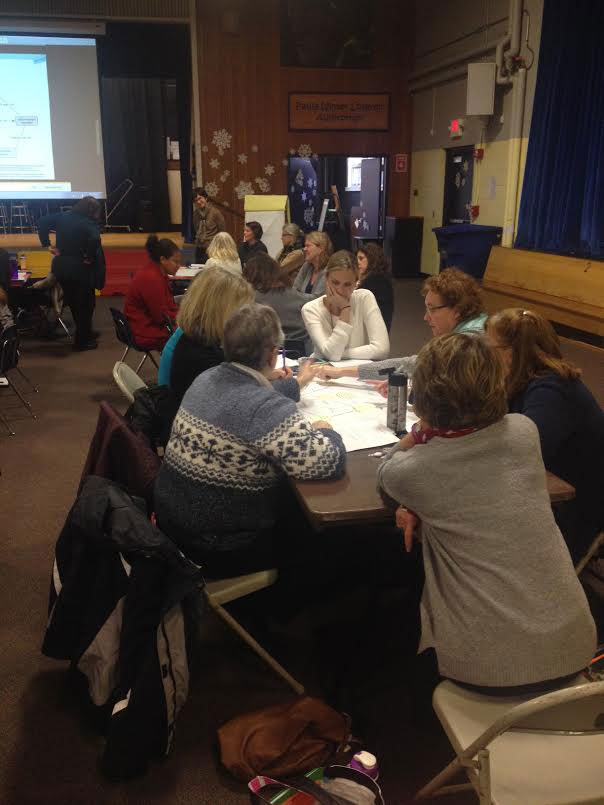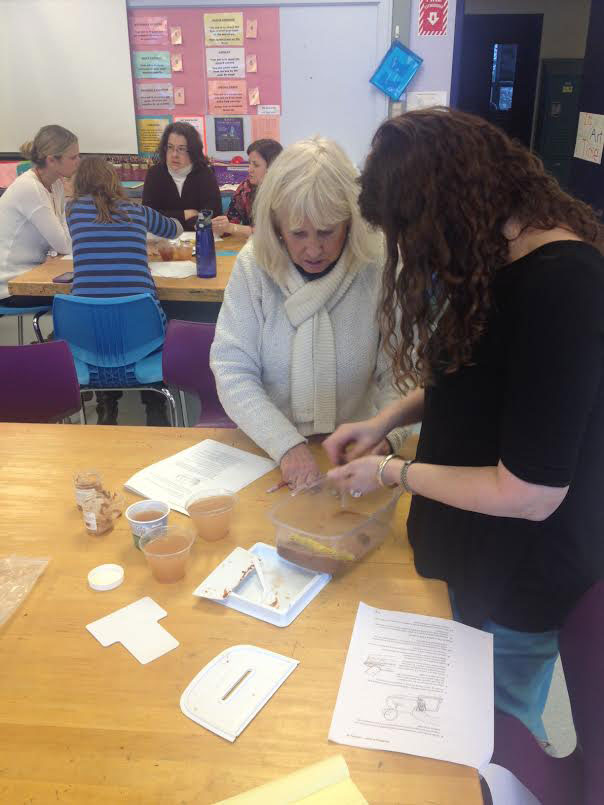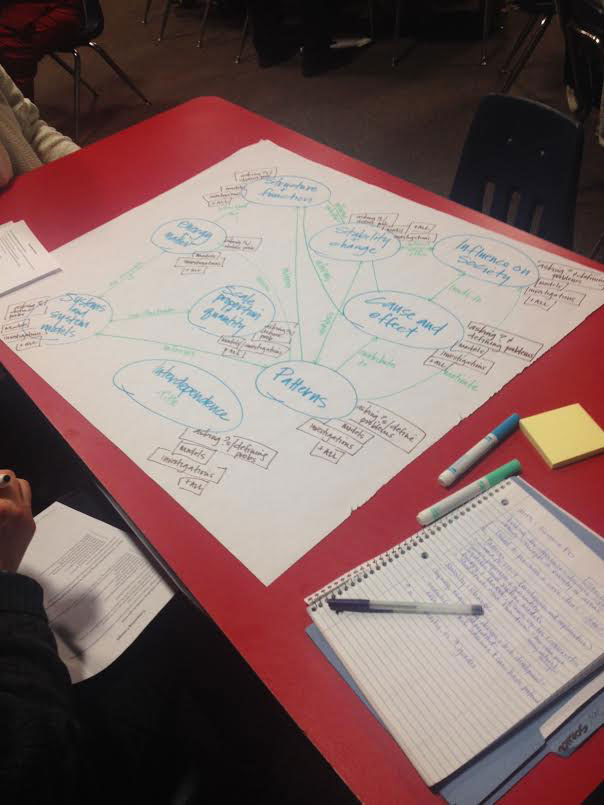Wednesday, February 24, 2016
For Immediate Release
MITS Provides Customized School Services Program to Dover-Sherborn School District
On January 13th, Museum Institute for Teaching Science completed the last of three professional development workshops with the Dover-Sherborn school district as part of MITS’ Customized School Services (CSS) program. The series of workshops was designed to familiarize elementary school educators with revised Massachusetts Science and Technology/Engineering Standards (MA STE) and their application within the classroom. These new standards are based on the Next Generation Science Standards (NGSS). The two-hour sessions, also held in September and November, alternated between Pine Hill Elementary School and Chickering Elementary School to accommodate teachers in both towns.
MITS staff was accompanied by education specialists Rachel Stronach and Elizabeth Moniz from the Lloyd Center for the Environment who helped run inquiry activities for the large group of teachers.
As part of the September session, MITS introduced Dover-Sherborn teachers to strand maps created by the Massachusetts Department of Elementary and Secondary Education (DESE). The strand maps represent each of the Disciplinary Core Ideas in the frameworks and show Learning Progressions from Pre-K to 12th grade. MITS staff facilitated a scavenger hunt activity in which the participants identified connections of standards at different grade levels, science disciplines, and links to the Common Core ELA and Mathematics Standards. This initial workshop set the foundation for teachers to explore Massachusetts Science and Technology/Engineering Standards
and look at the implications of learning outcomes across grade levels within the elementary schools.
The second session in the series focused on hands-on, minds-on inquiry activities. To begin the afternoon, MITS and Lloyd Center staff led the teachers in exploring three levels of inquiry – structured, guided, and open inquiry. Teachers were then randomly assigned a design activity that encompassed the different levels. Teachers were amazed by the variety of approaches developed by the open inquiry group to solving a problem, while the approaches created by the structured inquiry groups were very similar to one another. They also noted that the open inquiry designs were more creative and participant-driven, while the guided and structured did not require as much creativity and individual thought. All teachers went on to complete three more activities which highlighted different levels of inquiry at various grade levels, and left the workshop expressing interest in trying the activities with their students.
The third and final session of the Dover-Sherborn CSS series focused on the Crosscutting Concepts outlined by the Next Generation Science Standards (NGSS), and the MA Revised Science and Technology/Engineering Standards (MA STE). After reviewing the concepts, teachers participated in a concept mapping activity to identify connections between each Crosscutting Concept and Disciplinary Core Ideas.This activity illustrated how these concepts and the new MA STE standards are already being used in portions of the teachers’ current curriculum, and ways they can be further incorporated as the school district makes changes to meet these standards.
For the second half of the session, the teachers worked in groups to complete hands-on inquiry science activities for their respective grades. To close out the session, teachers joined back together to discuss what they learned in their individual activities and how each activity demonstrated the various Crosscutting Concepts and STE Standards.
Through this professional development series, teachers at the Dover-Sherborn Elementary Schools gained a better understanding of the Massachusetts Science and Technology/Engineering Standards and will be able to integrate hands-on, minds-on inquiry activities into their curriculum. We look forward to our bringing Customized School Services to other school districts to assist them in unpacking the newly adopted MA Revised STE Standards.
Customized School Services connects experienced science education specialists with schools/school districts that have professional development and curriculum development needs. MITS works with individual schools, school departments and other educational organizations to develop professional development sessions for their teachers to support and improve inquiry-based STEM education and assist them with adjusting their curriculum and resources to meet the MA STE Standards. STEM education specialists assist teachers and school systems in developing their best science education practices. For more information or to arrange a customized program for your school(s) contact MITS at 617-328-1515.
MITS is a not-for-profit corporation that collaborates with formal and informal education institutions to provide STEM professional development opportunities for K-12 teachers and non-profit organizations across Massachusetts. Program offerings include week-long graduate level Summer Professional Development Institutes, day-long Professional Development Seminars and Customized School Services. For more information, visit www.mits.org.
###



